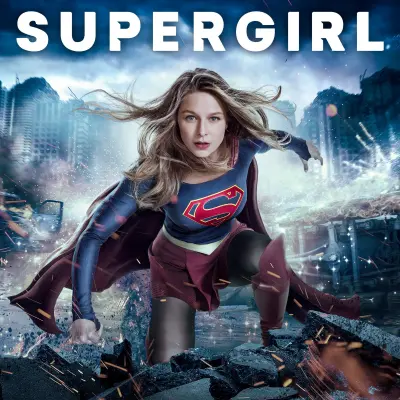Supergirl had a pitch-perfect ending, though it stumbled through messy plotting
-

"When Supergirl premiered, it felt like we needed her," says Caroline Siede. "Female-led superhero movies like Wonder Woman and Captain Marvel were still years away, and we were barely out of that strange period of asking celebrities whether they considered themselves feminists as some kind of 'gottcha' question. At a time when our cultural image of female strength was at a tipping point, Melissa Benoist’s dazzling portrayal of the Girl of Steel offered a different kind of empowerment story. One that prioritized hope, help, and compassion for all—a mission statement the show took to new heights in response to the 2016 election, when Supergirl became more overtly political in its storytelling. Over the past few years, however, Supergirl’s place in the ever-expanding, ever-diversifying live action superhero landscape has become a little less unique. Female-led superhero projects are no longer a novelty, which is perhaps why the past two seasons of the show have struggled to recapture the driving purpose of the first four. Plotwise, (Tuesday's) two-part finale is a bizarre end to a bizarre season, with villains and storylines that are dispatched so casually it’s almost comical. And yet part of the magic of Supergirl is that even with those flaws, I can still come away impressed by how well the last half of the show’s last episode stuck the landing emotionally."
ALSO:
TOPICS: Supergirl, The CW, Jon Cryer, Katie McGrath, Series Finales
More Supergirl on Primetimer:- How did Matthias Schoenaerts land a prison sentence? DC Universe star handed six-month jail term for multiple violations
- From Supergirl to Avengers: Doomsday - Which films will be affected by Trump's new tariff the most? Explained
- TV Today: Series Finale Time for Supergirl and Impeachment: American Crime Story
- Jenna Dewan to reprise her Supergirl Lucy Lane role on Superman & Lois
